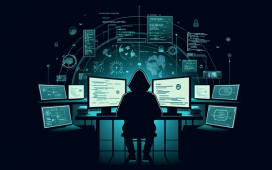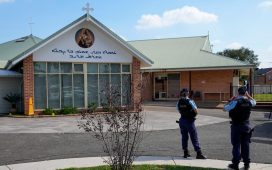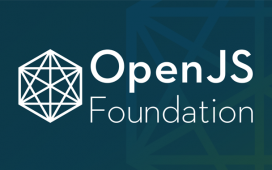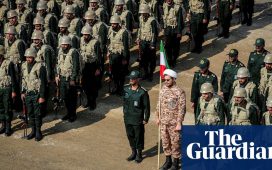They call my generation the “Ceasefire babies”, though I’ve always hated that name. I hated the mocking tone in which it was usually said, as if growing up in the 90s in Belfast was a stroll. There were still soldiers on the street when I was a kid. I remember them – in uniforms and maroon berets, at checkpoints, on pavements, crouching down on one knee, as if ducking out of sight of an enemy the surrounding civilians couldn’t see. I remember walking past one with my sister, then aged about 16, after she had picked me up from school. “Do they wear hats on their heads to stop them from getting cold?” I’d asked. “Yes,” she’d replied, smiling, and the pale-skinned recruit I’d gestured to had smiled as well. He looked barely older than her, perhaps 18. That was around the time I learned that the toy gun I used for games of cowboys and Indians could not be brought outside, in case a passing patrol saw it and mistook it for a real one. It didn’t matter that it was silver with an orange trumpet-top on the end of the barrel.
It had happened, my mother assured me, to a little boy, on the same street where I’d seen the teen soldier. I was never sure if this was urban legend, but the only time I took the gun outside, to the back yard – which was surrounded by a 10ft concrete wall – I’d had the arse smacked off me. The helicopters were out; what if they’d seen it with their cameras, my mother said, and thought it was real? The scenario seemed unlikely to me: that a helicopter, thousands of feet up in the air, would spot a kid playing with a toy and send a patrol to our house. But my mother wasn’t taking any chances.
Things have changed since the ceasefire. I think it’s possible, for the first time – for someone of my generation – to write about the conflict from a historical perspective. And yet, like so much of the recent past, it’s haunting, too. It’s all still there, just underneath the surface of things. A friend, the documentary maker Ali Millar, has an office in south Belfast, at the edge of a district that was battered during the Troubles. At the corner of the street, a mural on the side of a house commemorates William of Orange, who’d landed in the country three centuries before. What was most interesting about the mural was what it had replaced. It had been carefully painted over the top of another, less tourist-friendly image, this one of a man in a balaclava holding a semi-automatic rifle, with the words “YOU ARE NOW ENTERING LOYALIST SANDY ROW HEARTLAND OF SOUTH BELFAST ULSTER FREEDOM FIGHTERS” emblazoned in bold, black type, framed by icons of red fists. One man’s freedom fighter was another man’s terrorist, and to many of the Protestant population and their Catholic neighbours, the freedom fighters who had been commemorated in this memorial were just that – terrorists. The area was a 30-second walk from Great Victoria Street station, the terminus point for visitors arriving from the local airports or Dublin by bus. Sometimes, you’d see them – tourists with cameras, hovering in front of William’s painting, seemingly oblivious to what had been on the wall before it. Throughout the city, murals dedicated to the terror groups who’d once ruled the districts were slowly being erased. It was a whitewashing of the past and it was happening because we were desperate for the world to know us for any reason other than war. Maybe we were trying to erase our own memories, hoping for a collective amnesia by blotting out reminders of what had happened. But all you had to do was scratch the paint and you’d find the city’s past, like a ghost that refused to depart for the other world.


When the conflict ended in Northern Ireland, the fight turned from guns to history books. “Ended” was a euphemism, I thought, because it never truly seemed to end, so much as it changed shape, with the gunmen and those in charge of them concluding that violence was not the best way to win a war. Republicans – represented mainly by Sinn Féin, the political wing of the Provisionals, and mainly emanating from the Catholic community – maintained that the British had no right to be in Northern Ireland. The Unionists – represented by numerous warring factions but mainly the Democratic Unionist Party (DUP) – maintained that they did. Yet the “constitutional question” – over whether the Northern six counties should be reunited with the Southern 26 counties or remain in Britain’s clasp – was not what absorbed the attention of former combatants and their supporters. Whereas before they killed those they perceived to be their enemy, now they struggled with them for control of the narrative and how history would come to view them all. The debates were forever being recycled on radio and television talkshows:
“That murder was justified, he was working for the police!”
“The Royal Ulster Constabulary were a fantastic police force being gunned down by terrorists.”
“Excuse me, the IRA were not terrorists, they were freedom fighters, and they would never have had to pick up a gun if British soldiers hadn’t come on to the streets and started killing civilians!”
“The British soldiers were there protecting us, they would never have had to come in if the IRA wasn’t bombing innocents!”
It was endless. Between 1969 and 1998, 3,700 men, women and children had been slaughtered in bombings, shootings and more. Whether you justified or condemned each murder sometimes depended on which one, the victim or the perpetrator, came from your community. If the murderer was one of your own, then the more hardline members of the Tribe – because that’s what we were, a group thrown together by virtue of the altar we worshipped at on Sundays – expected you to lay out the reasons as to why murder was sometimes permissible. I was born into the Catholic faith, four years before the Provisional IRA announced a ceasefire and eight years before the signing of the peace accord, the Good Friday agreement. This meant I was expected to condemn all murders of innocent Catholics and IRA/Republican volunteers, while approving the murders of “legitimate targets” ranging from police officers to British soldiers and any civilian or volunteer who turned “tout” and passed information on to the security services. As for collateral damage, the poor Prods and Catholics who accidentally wandered into the path of a bomb, their deaths were regrettable but not so much that they besmirched the cause or the movement or the volunteer who’d deposited the device on a crowded street on a busy afternoon.

The Other Tribe lived by the same rules. And yet the strange thing was, it was not always the ex-prisoners who expected you to uphold the rituals and defend what they’d done. While each terror group had ideological aims – to gain a United Ireland (the IRA) or protect British rule (the UVF et al) – the youths who’d joined them had generally done so for what had seemed like good reasons at the time. Often, it was a death in the family that triggered their decision to sign up: a cousin who’d had his head blown off as he walked the half-mile from the pub to his home, or a brother killed when he answered a knock on the front door to a gunman waiting outside. I didn’t agree with what they had done, but it was easy to make such moral proclamations while living in a time of peace. I’d only seen the tail end of the war, and that had been bad enough. Could I have lived through the worst of it and held on to my morals? When you were surrounded by people with guns and you didn’t know if they were coming for you next, did having access to a gun yourself give you a false sense of power? Did it make you feel as if you’d reduced the odds of Death coming for your family? War was as complicated as it was ugly, and the person you were when you lived through it was probably different to the person who emerged after. Many of those calling morning radio talkshows, arguing for the narrative that cast their side in the best light, hadn’t spent 20 years in a 4x4ft cell musing on these matters. The ex-prisoners had and, among the ones I knew, joy and justification over their past deeds were in short supply. Most were stuck somewhere between remorse and empathy for their younger selves.
When it came to ex-prisoners, certain sections of society and the media had a tendency to cast them as evil. I understood that. I couldn’t stand in front of a woman who’d watched her husband be gunned down in front of their children, perhaps in their own living room, and tell her that the men who’d done it were more human than her grief would allow her to believe. I hadn’t lost anyone. Yet still I didn’t see the ex-prisoners as being beyond redemption. I’d seen men and women struggling to reconcile their present selves to what their past selves had done. Many were dying by the bottle or by suicide. The irony was that all of them, enemies who’d fought on opposing sides or sides that sometimes worked together but were more often apart, were facing the same struggles in peacetime. They all seemed to loathe sleep because sleep brought nightmares. They all woke up screaming in the middle of the night.
Many people have grown to dislike the use of the word “war” to describe what happened here. The term “the conflict” became a more acceptable alternative, even if it made a 30-year battle sound like a lovers’ tiff. Part of the argument was that the victims felt calling it war gave legitimacy to terrorist groups and their volunteers, allowed them to view themselves as soldiers. But we were to be the generation to avoid all that. We were to reap the spoils and prosperity that supposedly came with peace. In the end, we did get the peace – or something close to it – and those who’d caused carnage in the decades before got the money. Whether they’d abandoned arms (as the Provisionals did) or retained them (like the Loyalists), they’d managed to make a ton of paper. We got to live with the outcome of their choices.
• • •
“I don’t remember my grandparents having any money. They lived in poverty with an outside toilet.” I was arguing with my friend in a grimy Wetherspoon near the edge of the student district in south Belfast, sandwiched between the city centre and the road that led to the William of Orange mural. Most of its clientele were working-class Prods. With the bus station and Queen’s University nearby, it drew in its fair share of tourists and students, too. Three decades before, whatever establishment it had been then, it wouldn’t have been safe for me to be there, drinking among a bunch of tattooed Loyalists, especially with such an obviously Gaelic name: Leer-rah. The pronunciation would give me away instantly. In fact, it still wouldn’t have been safe for me to go into a pub in a Loyalist stronghold. This place, though, was a geographical no man’s land that anyone could lay claim to, a neutral venue for meeting Will. Like mine, his name gave him away – William was usually a name reserved for Prods. We could have met near my place; the area I lived in was becoming slowly gentrified, with a mix of Protestants and Catholics moving in, but the local pubs still retained their more hardened clientele – people who’d supported the IRA and would have bristled had they thought there was a Loyalist in their midst. The ex-prisoners themselves, those who’d actually been in the organisation or one of its splinter groups, were much more relaxed; they’d probably have bought him a pint. Will was from the east of the city, but I felt too nervous to venture into one of the working men’s pubs there. So, Spoons it was, barely a two-minute walk from the city centre and a halfway point between us. “How were your grandparents any worse off than mine?” We’d had this argument before – always in Spoons.
“Because yours were given jobs,” I said. “And housing.”
That sense of resentment had been passed down through the generations. We – their descendants – were no longer out protesting. Instead, we sat in pubs with our Protestant friends and bitched at each other about the things their “side” had done to ours, and vice versa. It was nasty but kind of irresistible, like picking at a scab. We should have been worrying about the future, not the past. The prospect of a harder border between the north and the south, as a result of Brexit, was looming like the shadow of a TV villain. The peace we’d enjoyed for 20 years was fragile at best. But we were alive and more likely to die by our own hands than somebody else’s. I didn’t know which was worse, but nor did I want to go back to those days and find out.

I’d go to interview fiftysomething ex-prisoners, covered in tattoos but ultimately softened by decades of three meals a day and lights out at 8pm, and leave with a different image: of the frightened 16-year-old they’d once been. When you were a working-class kid with no money and no prospects, and feared people more violent than you, nothing made you feel as powerful as a weapon in your fist. That seemed to be how the IRA, UDA and all the other groups sucked recruits in: fear. As the war dragged on, it became about other things. Money. Sex. Greed. Power. Being senior in one of these groups came with status. Women threw themselves at you. There was the risk of prison, but if you avoided that, there was more money than you could imagine – particularly if you operated near the top of the organisation. An ex-special branch officer once told me how, in 1985, he’d observed a UDA brigadier and Provo leaders in a bar in Belfast city centre. They were negotiating the carve-up of building sites. Back then, everyone from builders to shopkeepers had to pay protection money’ to whatever group was running the area. If they didn’t pay it, they couldn’t work there. It still happens now, even in peacetime. The lower Newtownards Road, a Protestant area, was pocked with shuttered windows, the remnants of small businesses that couldn’t afford the regular payout to the Loyalists.
Later, some of those who’d been ground-level troops in the IRA would speak out, feeling that the years they’d spent in prison had all been for nothing. They viewed the peace deal as a betrayal. What had been the purpose of it all, if the end point was going to be an armistice? Some met with their counterparts in the UVF and compared notes, trying to figure out who or what or how they’d been fucked over. Had it been the plan all along – to sell out? With hindsight, some of them believed it had.
• • •
The story of how my generation got fucked over was a different one. We didn’t sign up to a war and get sold out by a surrender. Politicians, hoping to sell the peace deal to our parents, made three promises.
The first promise, they barely delivered on: peace. Loyalist paramilitaries stopped terrorising Catholic neighbourhoods; instead, they terrorised their own. The Provisional IRA and various Republican splinter groups faded away, but in their place new groups grew, with names such as “the New IRA”. Like the Loyalists, they instilled fear in poor areas such as Ardoyne, which were only beginning to get over the past three decades. In the background, Unionist and Republican or Nationalist politicians continued to bicker, reopening old wounds and appealing to the sectarian fears of their voters at every election. It wasn’t the peace promised, just an absence of all-out civil war. Shootings still happened, but it was no longer each side against the other; the paramilitaries were now aiming their guns inwards, towards their own communities.
The second promise was prosperity. Peace, we were assured, would bring a thriving new economy. It never appeared. It didn’t matter what qualifications you had, the most plentiful work was to be found in call centres, answering or making calls for a minimum wage. They were egalitarian shitholes; middle-class kids with PhDs mixed with kids with no GCSEs, and they all earned the same for doing the same grunt work. If you were lucky, the job didn’t come with timed toilet breaks. In the end, most graduates ended up leaving. People who’d been searching for jobs for two years in Northern Ireland would find one within eight weeks in London. But it was like escaping from one trap only to walk into another; London offered jobs but it didn’t offer a life. Most people I knew out there were just scraping by, paying £650 a month for a bedroom in a grotty apartment. Eventually, they’d figure out you couldn’t buy a house for £100K in London the way you could in Belfast and would either return, settling for what work they could find and swapping career dreams for family life, or head farther afield.
The third promise the politicians made and broke was the one that hurt the most. It was felt mostly in the areas that had already been ravaged, the ones where the gunmen continued to roam. Your children, they’d told our parents, will be safe now. With the peace deal, the days of young people disappearing and dying young would be gone.
Yet this turned out to be a lie, too.
• Lost, Found, Remembered by Lyra McKee is published by Faber & Faber at £12.99. To order a copy for £10.91, go to guardianbookshop.com.






